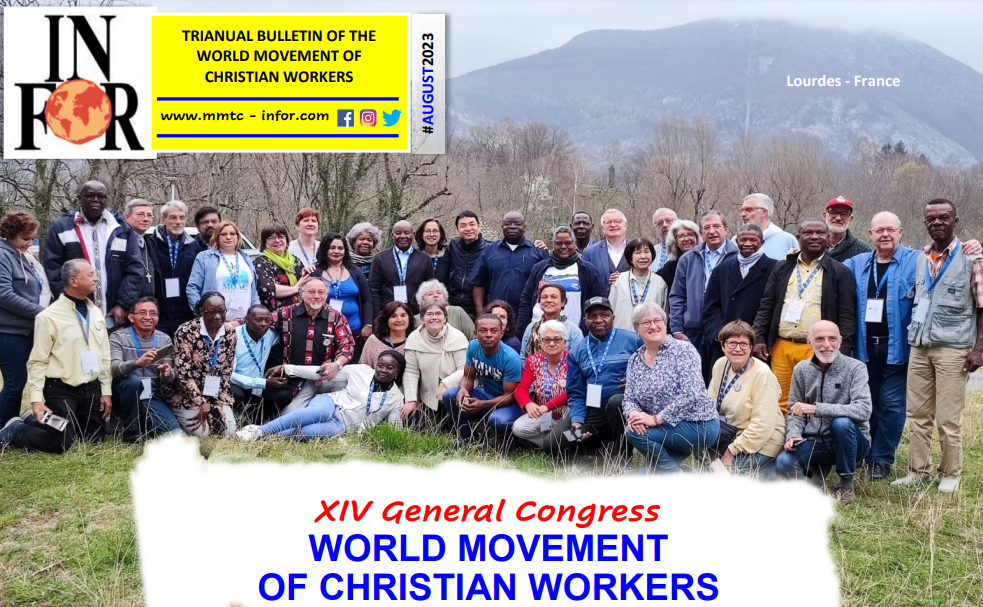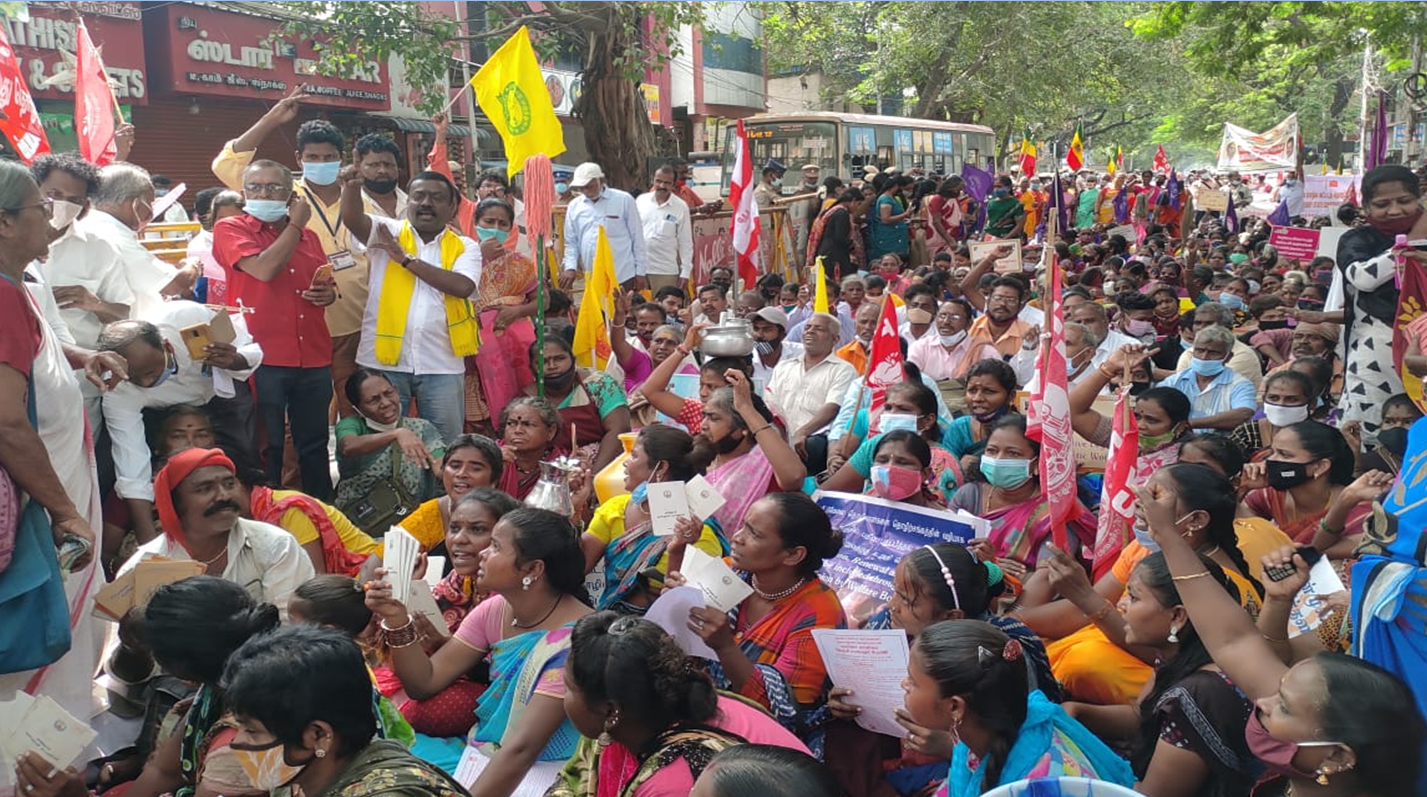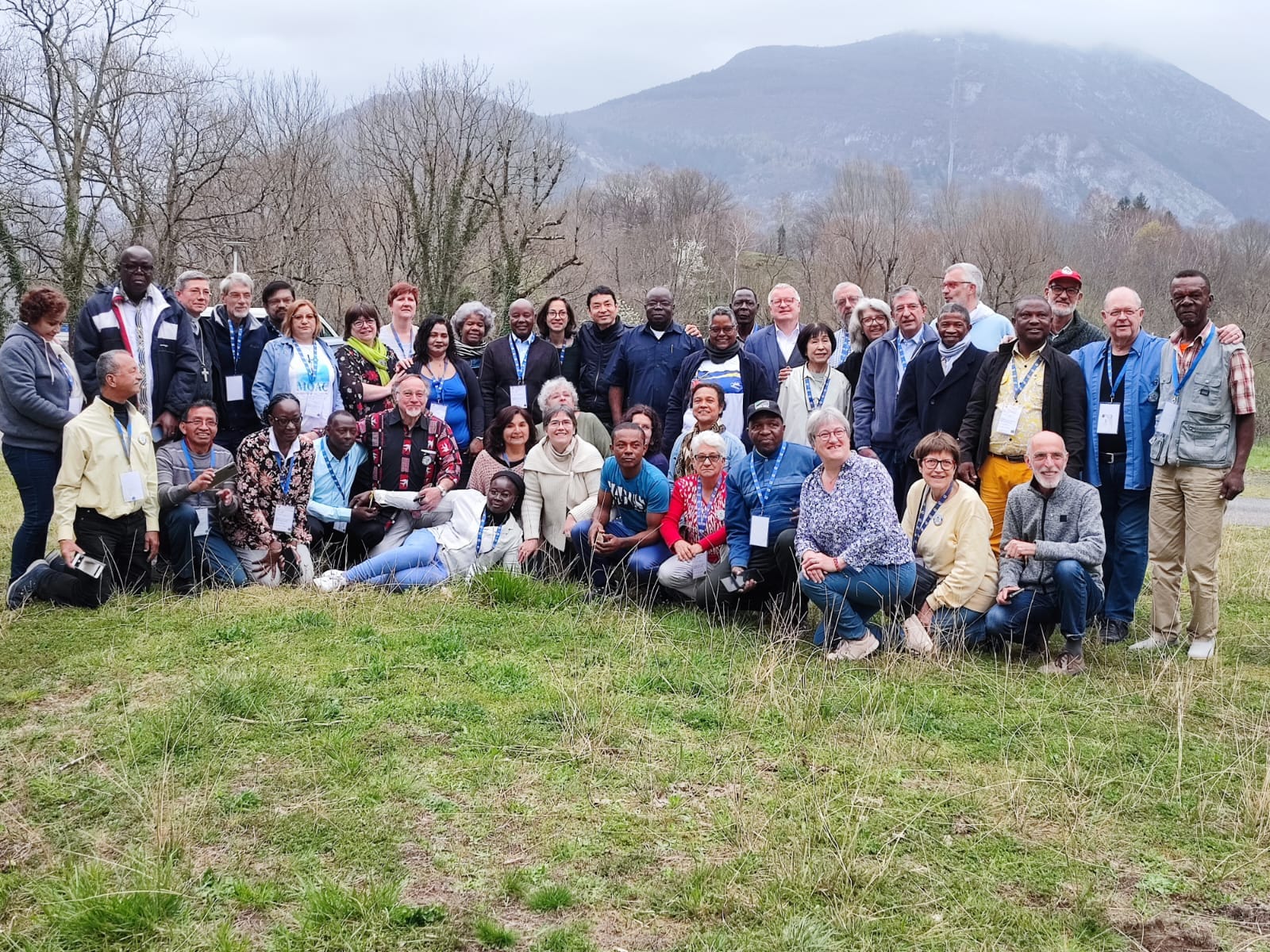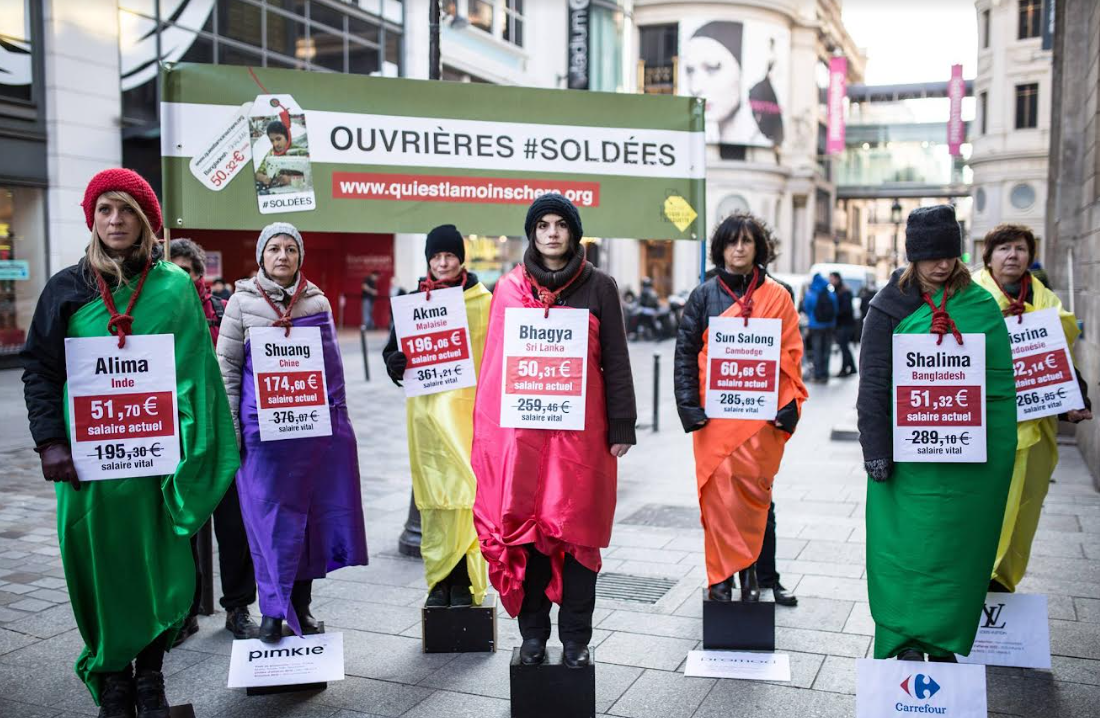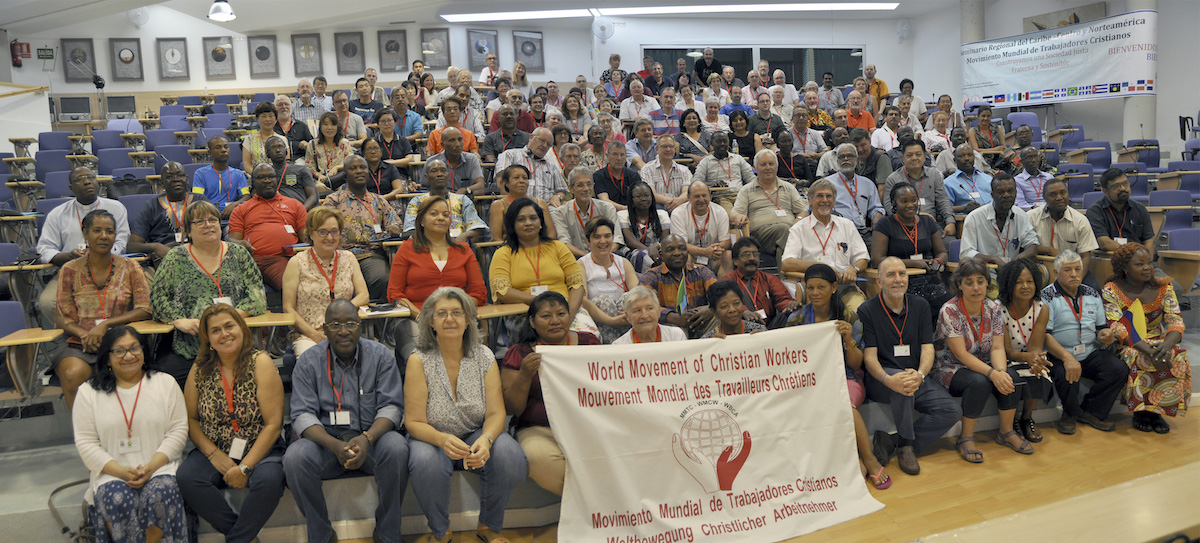
Gathered to discuss and renew our commitment to bringing the Gospel closer to the world of work, we have completed the work of the International Seminar and the General Assembly – WMCW - on the theme "Land, Housing and Work for a decent life". This seminar was held in Avila, Spain, from 15 to 21 July 2017, and has brought together 120 delegates from 42 movements of Christian workers from Africa, America, Asia and Europe.
During these days, we have lived together in a caring and fraternal way. We were welcomed by the city, its diocese, its mass media and for that we are very grateful. During our meeting, we were able to welcome among us the main leaders of the Church and the trade union representatives of Spain, who encouraged us to continue building bridges between the world of the Church and the world of work.
We thank God for 50 years of Christian presence in the world of work and for this journey alongside so many working brothers, sharing their doubts and hopes, their joys and their sorrows.
We feel supported by Pope Francis in our task of evangelization. In his message to our Assembly, through the Bishop of Avila, the Pope invites us to « bring the Gospel closer to the world of work, so that the voice of workers continues to resonate within the Church; and to lead the struggle so that the whole world can live in dignity, with no one excluded from it. »
From our perspective of believers, we have shared our experience and our presence in the different realities of the movements that make up the WMCW. The International Labour Organization (ILO), the European Trade Union Confederation (ETUC) and the Popular Movement of Forgotten Neighbourhoods shared their experience with us. We have deepened the teaching of Pope Francis on pastoral work, the economy of rejection and decent work.
We share our concerns about unemployment, the lack of decent jobs and the precarious labour relations around the world, and how these generate pain, suffering, death, lack of solidarity, despair, war, violence and migration. Profit is based on a model of labour relations which weakens labour law, collective bargaining, protection and social rights, as well as the representation and defense of workers. In one word, it is based on the impoverishment of life, dehumanization and inequality at work. These conditions affect the lives of millions of people and entire families irrespective of age, sex, race, irrespective of the place where they live. Young people, women and children (child labour) are also affected.
This suffering is the result of a system based on a culture of rejection that transforms people into goods. These characteristics are found in all countries, since we share a context of economic globalization which does not take into account solidarity and respect for the common good. We feel challenged. The pain of the whole family of workers is our pain. We want to be a sign of hope and show signals of hope, personally and collectively. We want to maintain an attitude that strengthens our presence among our working brothers and sisters, so as to listen, accompany, train and denounce situations. This depends on our personal commitment and is how we can bringing about processes of humanization and allow Jesus to be visible through us, as a gesture and sign of love towards others, in our close, precarious and poor spaces. This goes together with an explicit commitment to increase global solidarity, in line with the international dimension of our movements.
Meeting these challenges can be achieved by continuing the evangelization of the world of work and announcing the good news, in line with the humanization project that God is pursuing for all and which places the person, made in his image and likeness, at the centre of all concerns ...
We are aware of our limitations but we also know that other major actors share our commitment and fight for the sacred dignity of the person. They share the slogan "land, housing and work for a decent life." Pope Francis encourages us to continue building alternatives, both small and large. The World Movement of Christian Workers wants to continue to grow, in partnership with other realities, to build a world with more justice, solidarity and a more sustainable world.
We offer our commitment, our work and our struggles to all the workers of the world, at local, regional and global level. This is how we will realize our evangelization mission. We intend to adapt the organization of the MMTC to better respond to this challenge.
We are committed to :
1. Strengthen our militant lifestyle, our formation and our revision of life in accordance with our faith in Jesus Christ, with the Gospel and the social doctrine of the Church.
2. Promote the relationship between movements and the workers pastoral: we need to be a voice in the Church and a voice in the world of work, with particular attention to the most excluded and precarious people.
3. Analyze the regional situation of workers in order to create dynamics that denounce situations of vulnerability of rights and protect the dignity of the person. Promote equal opportunities for men and women in all areas, also within our organizations. Contribute to the training of young Christian workers.
4. Encourage alliances with other major actors at local and regional level who share our approach to decent work and the construction of the common good.
5. To promote solidarity and common action with popular movements, during World Meetings, in a dialogue with the Pope, and at specific meetings by zone or region.
6. Continue to invite all Christian Workers movements to take part to the International Day of Decent Work (7 October), together with the world trade union movement and the International Labour Organization.
7. Propose at local and regional level a confluence of Catholic-inspired organizations, and in doing so try to launch an international initiative of the Church in favour of decent work.
8. Demand decent work for all. 9. Urge states to guarantee a social wage or citizen’s income that will help avoid the rejection of millions of people if access to decent work is not guaranteed.
University of the Mystique, Avila, Spain, July 2017




